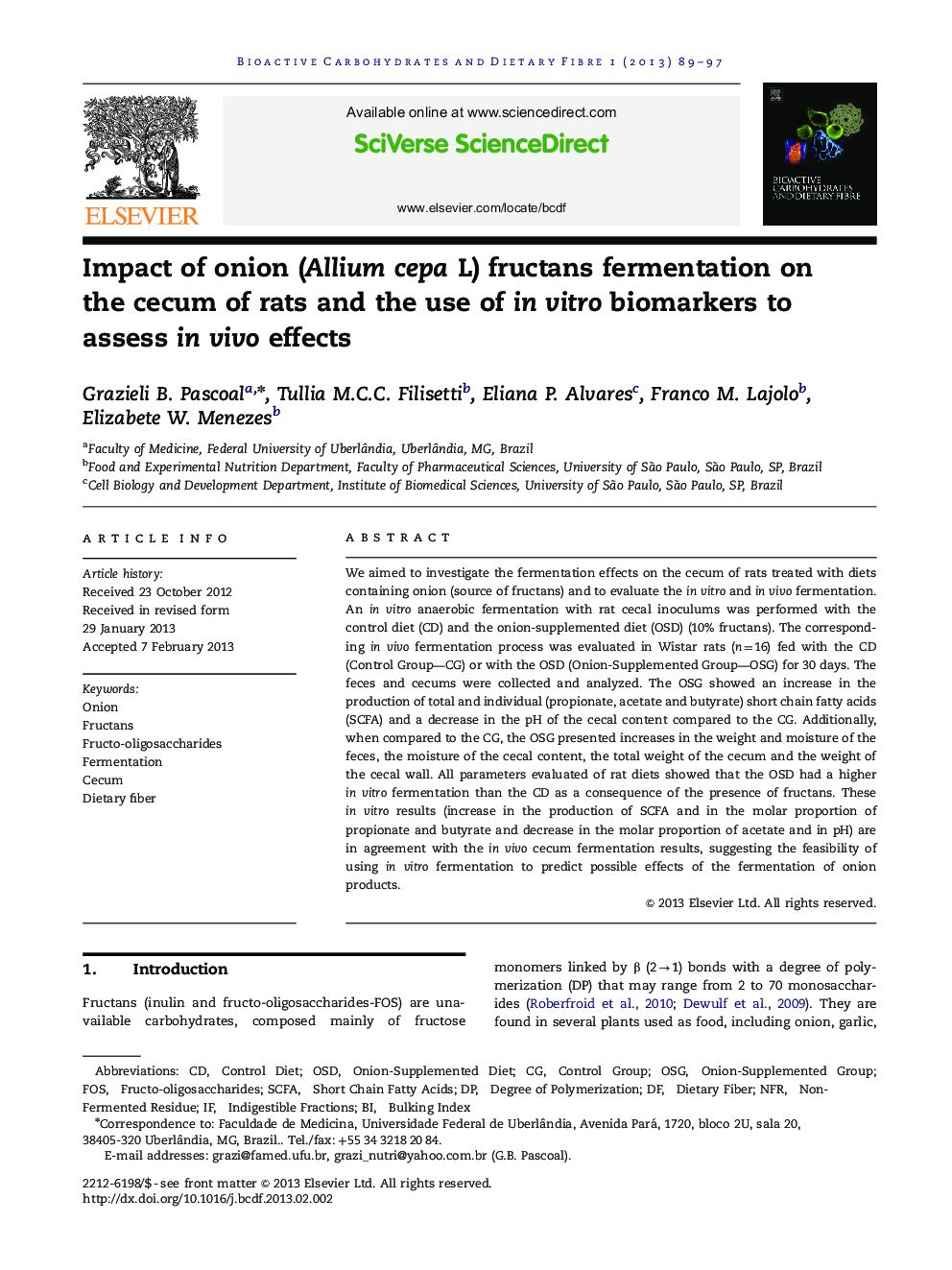| Article ID | Journal | Published Year | Pages | File Type |
|---|---|---|---|---|
| 1413061 | Bioactive Carbohydrates and Dietary Fibre | 2013 | 9 Pages |
We aimed to investigate the fermentation effects on the cecum of rats treated with diets containing onion (source of fructans) and to evaluate the in vitro and in vivo fermentation. An in vitro anaerobic fermentation with rat cecal inoculums was performed with the control diet (CD) and the onion-supplemented diet (OSD) (10% fructans). The corresponding in vivo fermentation process was evaluated in Wistar rats (n=16) fed with the CD (Control Group—CG) or with the OSD (Onion-Supplemented Group—OSG) for 30 days. The feces and cecums were collected and analyzed. The OSG showed an increase in the production of total and individual (propionate, acetate and butyrate) short chain fatty acids (SCFA) and a decrease in the pH of the cecal content compared to the CG. Additionally, when compared to the CG, the OSG presented increases in the weight and moisture of the feces, the moisture of the cecal content, the total weight of the cecum and the weight of the cecal wall. All parameters evaluated of rat diets showed that the OSD had a higher in vitro fermentation than the CD as a consequence of the presence of fructans. These in vitro results (increase in the production of SCFA and in the molar proportion of propionate and butyrate and decrease in the molar proportion of acetate and in pH) are in agreement with the in vivo cecum fermentation results, suggesting the feasibility of using in vitro fermentation to predict possible effects of the fermentation of onion products.
► To know the extension of the fermentation effects of onion (source of fructans). ► The onion-supplemented diet shows high fermentability. ► The in vitro fermentation is feasible as a preliminary biomarker. ► The onion diet positively influences multiple parameters in the cecum of rats.
